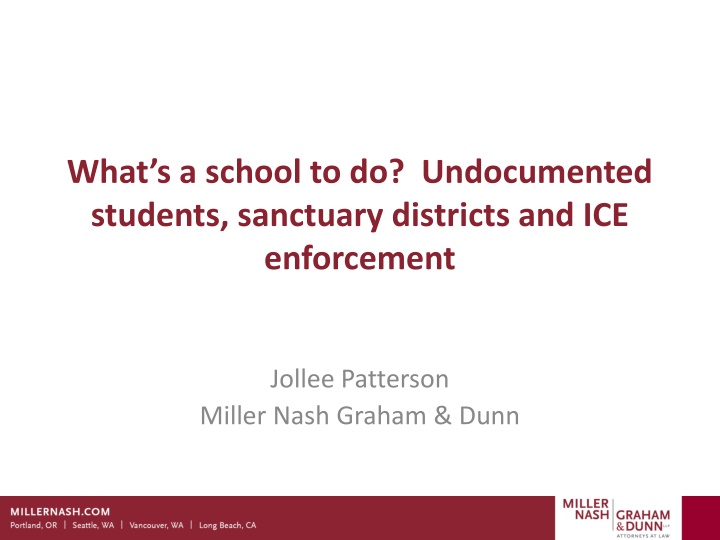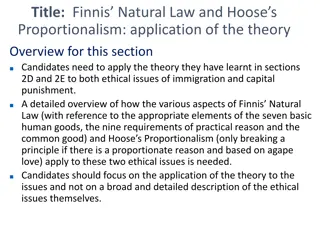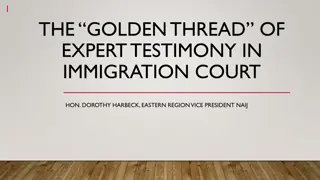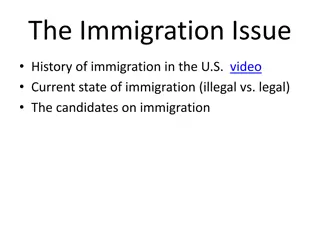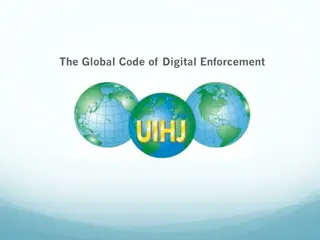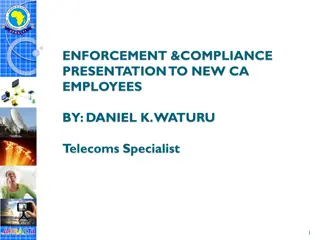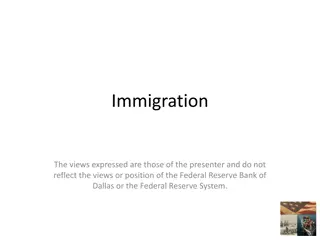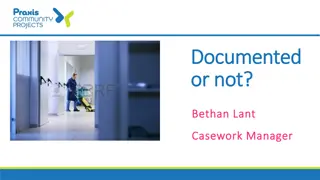Challenges Faced by Schools in Addressing Immigration Enforcement Policies
Schools are navigating complex issues related to undocumented students, sanctuary districts, and ICE enforcement in light of Executive Orders and DHS Implementation Orders. The impact on schools, sensitive location enforcement policies, and the concept of sanctuary jurisdictions are discussed, highlighting the uncertainties and responsibilities faced by educational institutions.
Download Presentation

Please find below an Image/Link to download the presentation.
The content on the website is provided AS IS for your information and personal use only. It may not be sold, licensed, or shared on other websites without obtaining consent from the author.If you encounter any issues during the download, it is possible that the publisher has removed the file from their server.
You are allowed to download the files provided on this website for personal or commercial use, subject to the condition that they are used lawfully. All files are the property of their respective owners.
The content on the website is provided AS IS for your information and personal use only. It may not be sold, licensed, or shared on other websites without obtaining consent from the author.
E N D
Presentation Transcript
Whats a school to do? Undocumented students, sanctuary districts and ICE enforcement Jollee Patterson Miller Nash Graham & Dunn
Executive Orders on Protecting the Homeland President has issued several Executive Orders collectively called Protecting the Homeland Schools most immediately impacted by EO Enhancing Public Safety in the Interior of the United States Federal government will increase enforcement efforts against removable aliens Federal government "shall ensure that [sanctuary] jurisdictions are not eligible to receive Federal grants, except as deemed necessary for law enforcement purposes..."
DHS Implementation Orders On Feb. 21, DHS issued comprehensive policy guidance implementing the Executive Orders, signaling more intensive law enforcement: Elimination of most of the previously exempt categories for enforcement Sparing use of parole in lieu of detention and only in the case of demonstrated urgent humanitarian reasons or significant public benefit Higher level of proof for asylum claims Elimination of privacy rights for those in immigration proceedings Significant new resources for enforcement agents and detention centers
What about sensitive location enforcement 2011 Sensitive Location enforcement policy is meant to ensure that ICE officers and agents exercise sound judgment when enforcing federal law at or focused on sensitive locations and make substantial efforts to avoid unnecessarily alarming local communities. The policy is not intended to categorically prohibit lawful enforcement operations when there is an immediate need for enforcement action Only applies to arrests, interviews, searches, and surveillance. Actions not covered by this policy include actions such as obtaining records. documents and similar materials from officials or employees, providing notice to officials or employees, serving subpoenas [etc.] 2017 DHS Orders indicate that sensitive locations guidance remains in effect
What is a sanctuary jurisdiction? No common definition depends on the jurisdiction and context For schools, commonly means that district officials: will not provide student or family information to ICE agents except as required by law will establish procedural safeguards for ICE agents will take other actions to support immigrant students Concern that sanctuary overstates the power of schools to protect students and families DHS Orders do not address sanctuary jurisdiction
Oregon law regarding sanctuary No law enforcement agency shall use agency moneys, equipment or personnel for the purpose of detecting or apprehending persons whose only violation of law is that they are persons of foreign citizenship present in the United States in violation of federal immigration laws." Executive order extends this to other state agencies. Does not apply to school districts employees (except if designated law enforcement agents) School districts have to establish their own policy regarding cooperation with federal law enforcement
Rights of undocumented students Plyler v. Doe US Supreme Court case affirming the right of undocumented students to attend school By denying these children a basic education, we deny them the ability to live within the structure of our civic institutions, and foreclose any realistic possibility that they will contribute in even the smallest way to the progress of our Nation." Even if the State found it expedient to control the conduct of adults by acting against their children, legislation directing the onus of a parent's misconduct against his children does not comport with fundamental conceptions of justice."
Under Plyler, schools should not take actions that would discourage enrollment and success of students based on immigration status Do not ask about immigration status Do not request or maintain records related to immigration status
Student rights harassment and bullying All students are entitled to a school environment free of harassment and bullying State law requires policy and practices regarding bullying and harassment Inform students and families about how to report Take concerns seriously and investigate promptly If harassment is found, take effective remedial action If concerns arise, be prepared for media attention and potential legal action
Release of education records FERPA prohibits release of student education records without prior parental consent No exception that clearly applies to ICE enforcement not a health and safety emergency Designated directory information may be released without parental consent Current practice regarding release of directory information may only apply to local law enforcement Decide what practice your district will follow for federal agents, and clearly communicate to your schools
Release of education records - subpoenas Schools must produce education records in response to a subpoena, but FERPA requires reasonable effort to notify parents before responding School staff should direct subpoenas to central office to ensure consistent response in accordance with policies
Student interviews by ICE agents Review policies and practices regarding making students available to law enforcement during the school day Formal or informal agreements with local law enforcement may not apply to federal agents Significant risk in not providing prior notice to parents of law enforcement interviews, except in cases of child abuse, imminent harm or warrant
Student interviews by ICE agents If an ICE agent comes to school seeking to interview a student, best practice is for school staff to take agent s contact information and tell him/her that someone will be in touch promptly Schools should not release student information or make students available for interview on the spot School should not confirm that student is in attendance
Do sanctuary districts risk loss of federal funds? Very complex question under Tenth Amendment Generally understood that federal government cannot require states to assist with federal law enforcement Numerous legal challenges to executive order that purports to sanction states and local jurisdictions Most federal funds for schools come through congressional appropriation. Substantive changes would require congressional approval. 2017 DHS Orders solicit but do not require local law enforcement cooperation with 287(g) program
What about DACA and visa holders? President indicated intent to review DACA (Deferred Action for Childhood Arrivals) but has not issued any orders or guidance. 2017 DHS Orders do not affect DACA recipients. For school staff on visas, be cautious and consult individual legal counsel Executive Order Protecting the Nation from Foreign Terrorist Entry into the United States currently on hold Visa holders from named countries should be very cautious about leaving the U.S.
Best Practices- Records Update emergency contact information for students Review polices regarding directory information Direct school staff to consult with central office before responding to a request for information or a subpoena Assign central office person to respond to requests to ensure correct and consistent practice Don t collect or maintain records related to immigration status Inform community of district policy and practice
Best Practices Law Enforcement Review policies and practices on cooperation with local and federal law enforcement Risky to make students available for law enforcement interviews with law enforcement, except in cases of child abuse, imminent harm or a warrant School personnel should not confirm attendance status of student before communication with central office School personnel should take agent information and coordinate through central office Review district policy with local law enforcement Inform community of district policy and practice
Best practices School Climate Review policies on bullying and harassment Ensure students are informed about how to report concerns Thoroughly investigate concerns of harassment and bullying, take action where substantiated Affirm importance of safe and supportive environment for all students
Best practices communicate and be prepared! Determine district policy Communicate to your schools, students and families Respond to concerns and keep documentation Prepare in advance for media coverage
